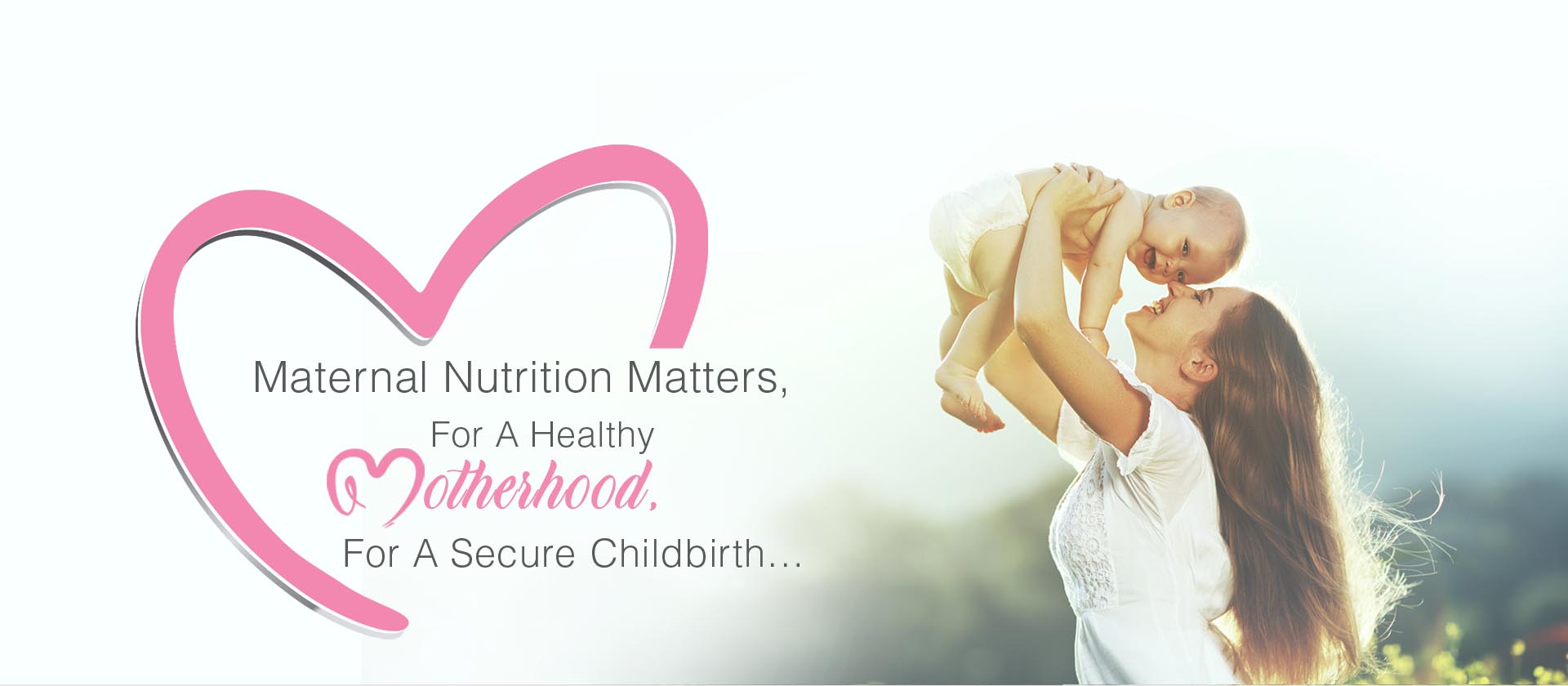
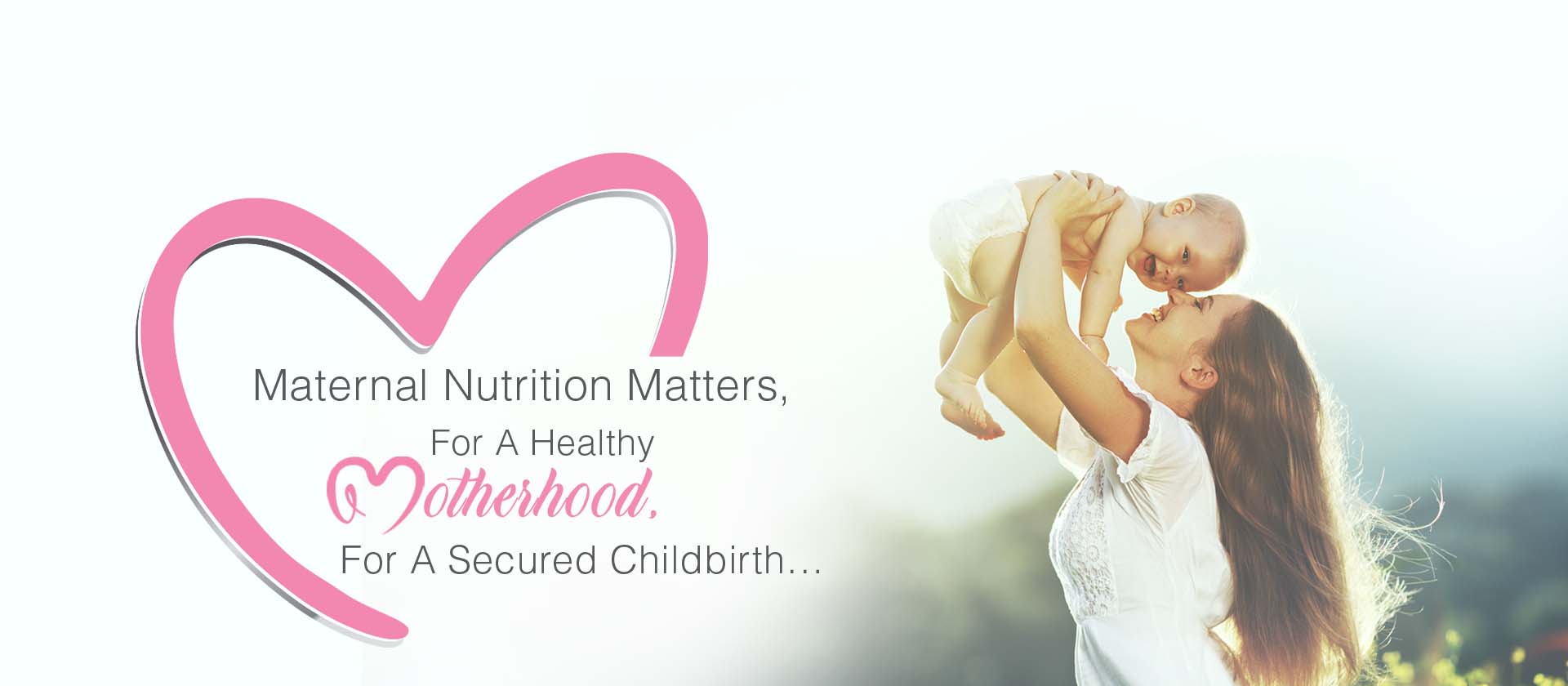
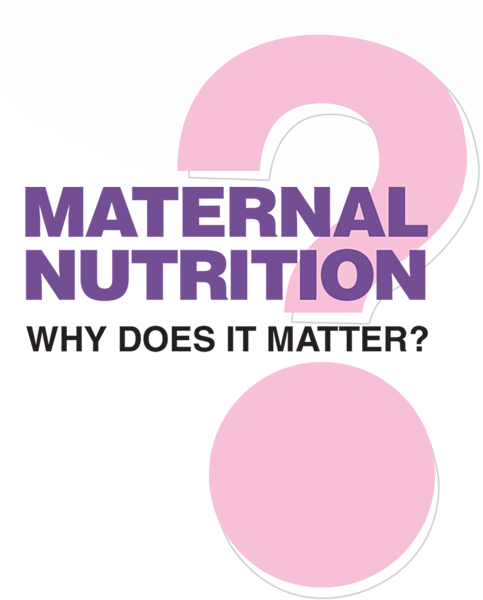
Pregnancy represents a unique stage in life with considerable potential to influence not only maternal health but also the health of the next generation. Maternal nutrition at conception and during pregnancy influences the growth and potential development of the fetus and contributes to the maturity of a healthy baby.1
[popup_anything id=”650″]
During pregnancy, a woman’s nutritional needs grow significantly.
For example, caloric intake should increase by approximately 350 kcal/day3 during pregnancy. Whereas, women who breastfeed require approximately 600 additional kcal/day3 beyond what is recommended for non-pregnant women.
During lactation, if women do not consume the extra calories, then body stores are used to maintain lactation. It is not unusual for lactating women to lose 0.5-1.0 kg/month after the first postpartum month.4
Increased Energy and Macro & Micro nutrients Requirements During Pregnancy and Breast-Feeding warrant regular meals of larger portions or higher frequency of food intake.5
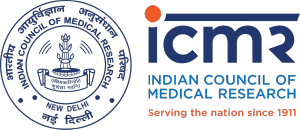
Guidelines on Recommended Dietary Allowance (RDA) clearly articulate this increase in nutritional requirements for Energy, Protein & Key Micro-nutrients (Vitamins & Minerals)
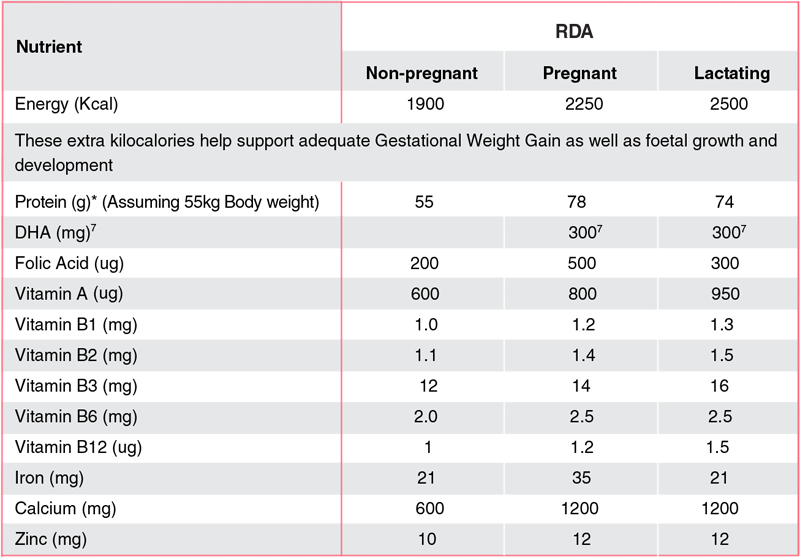
*Calculate @ 1.4g / kg of your body weight, for your own protein requirement
Note: Several other micronutrients require no increase during pregnancy or lactation (as per ICMR 2010 RDA), and hence have not been highlighted here. E.g., Copper, Chromium, Iodine, Manganese, Selenium, Magnesium, Potassium, Sodium etc.
The recommended increase in daily nutrient intake during pregnancy ranges from
Increased energy requirements during pregnancy & breast-feeding warrant
Can Diet Alone Ensure Adequate Nutrition For Baby & Mother?
The consumption of a varied and balanced diet from the pre-conceptional period is essential to ensure both maternal well-being and pregnancy outcomes. However, the risk of inadequate intakes of specific micronutrients in pregnancy and lactation is high even in the most industrialised countries. This particularly applies to Protein, DHA, iron, iodine, calcium, folic acid, and vitamin D.8
There is compelling evidence from epidemiologic studies that poor nutrition during pregnancy, in the form of insufficient intake, low protein, or deficiencies in micronutrients, is associated with poor developmental outcomes in children including lower cognitive functioning, deficits in attention, and disruptive behaviour problems.9
Nutritional deficiency during pregnancy has been linked to:
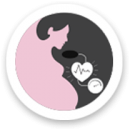

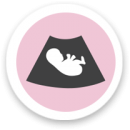

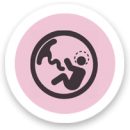
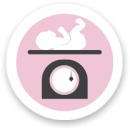
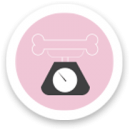

For atleast the first six months after delivery, the baby is fed only breast milk, & is totally dependent on the mother for all nutrient requirements. The nutrients present in this milk come from the diet of the mother or from her nutrient reserves.
During the first four to six months of life, the infant gains double the weight than it gained in the mother’s womb. The milk produced in the first four months of lactation constitutes an amount of energy that is equivalent to the total energy expenditure during pregnancy. Lactation raises nutrient needs due to milk production and post-partum recovery first through colostrum and then through breastmilk. To have good nutritional status the lactating mother has to increase nutrient intake.
| Nutrients | Benefits Of Nutrients |
| Protein | Supports positive pregnancy outcomes, healthy maternal weight gain to prepare for labour & lactation. Helps promote healthy development & growth of the foetus & baby. |
| Folic Acid, Vitamin B (B2,B6,B12) & Vitamin C | Essential for embryogenesis, cell metabolism, help to prevent premature birth, low birth weight and neural tube defects. |
| DHA (An Omega-3 Fatty Acid) | Supports greater gestational period, healthy birth weight, foetal brain development, prevention of preterm delivery and maternal post-partum depression. |
| Iron | Helps to reduce risk of preterm birth, low birth weight and iron-deficiency-anaemia in the new born. |
| Zinc | Vital to prevent SGA (Small for Gestational Age) infant or IUGR (Intra-Uterine Growth Retardation) and preterm babies. Helps to improve immunity. |
| Vitamin A | Helps to improve foetal ocular health and immune system. |
| Calcium and Vegan Vitamin D | Vital to prevent gestational hypertension, pre-eclampsia and neonatal mortality, promote growth and development of babies’ bones and teeth. |
| Vitamin E | As an antioxidant, helps in boosting immunity. |
| Vitamin K | Helps in blood clotting. |
| FOS- Pre-Biotic | Improves gut health, enhances mineral absorption, helps reduce cholesterol16 |
Here’s a detailed insight on the benefits of
Protein & Big 4 (DHA, Folic Acid, Iron & Calcium)
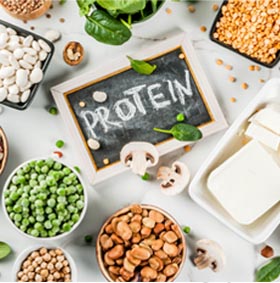
[popup_anything id=”388″]
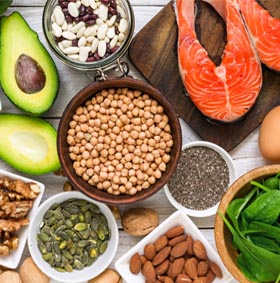
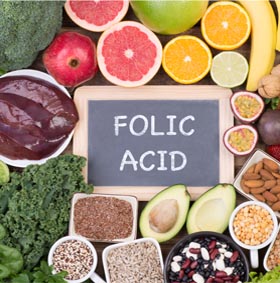
[popup_anything id=”393″]
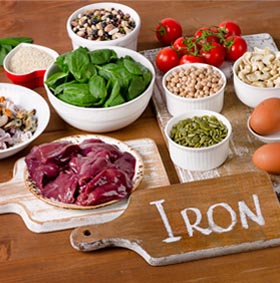
[popup_anything id=”397″]
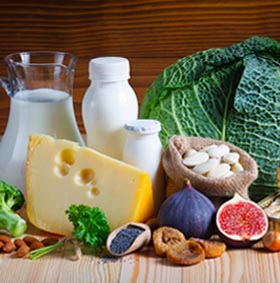
References
1. Federico Mecacci et. al.; Nutrition in pregnancy and lactation: how a healthy infant is born; JPNIM 2015
2. Irene Cetin et. al; The importance of maternal nutrition for health; JPNIM 2015
3. ICMR (2010) guidelines for sedentary pregnant women
4. Susana Ares Segura et. al.; An Pediatr (Barc). 2016 Jun
5. Michelle A. Kominiarek et. al; Med Clin North Am. 2016 Nov
6. Phillips et al; Lupus 2006;15(11):794-80
7. Recommendation: American Pregnancy Association
8. S. Swaminathan et al; British Journal of Nutrition (2012), 108, S50–S58
9. Franca Marangoni et. al. An Italian Consensus Document; 2016
10. Kate Keenan et. al; Poor nutrition during pregnancy and lactation negatively affects
11. Roberts et al, American Society for Nutritional Sciences.; 2003
12. Carmichael et al; Am J Perinatol. 2013 August ; 30(7): 579–588
13. Oke et al; Physiology and Pharmacology Publications. (2017)101
14. Protein Consumption in the Diet of adult Indians (PRODIGY) Survey by Indian Market Research Bureau (IMRB); 2019
15. Greenberg et al; Reviews In Obstetrics & Gynaecology; Vol. 4 No. 2 ; 2011
16. https://pubmed.ncbi.nlm.nih.gov/20119826/
© 2020 CHPL I All right reserved
© 2020 CHPL I All right reserved